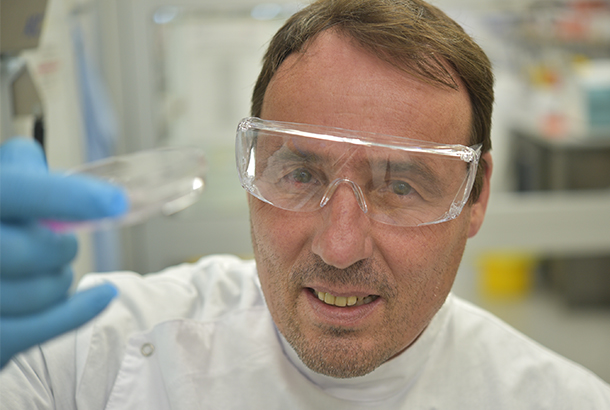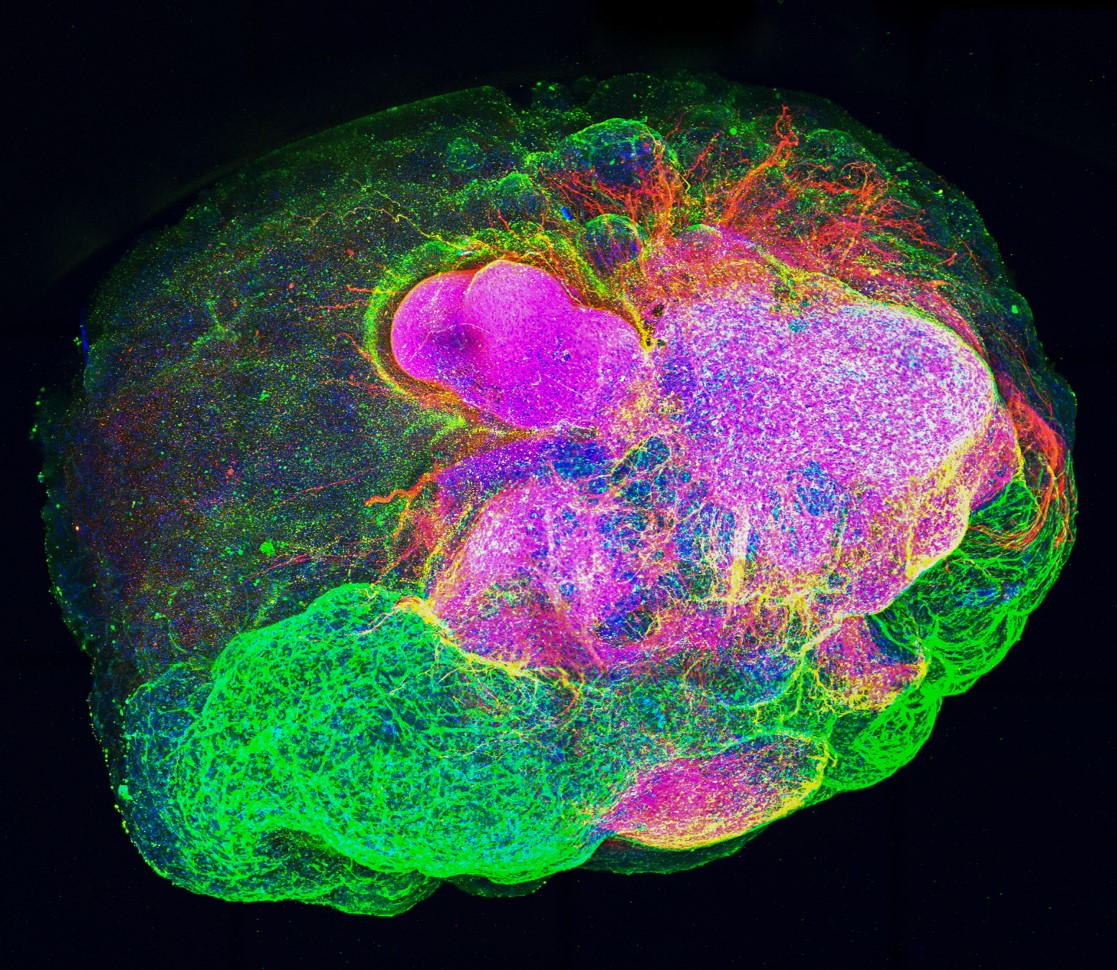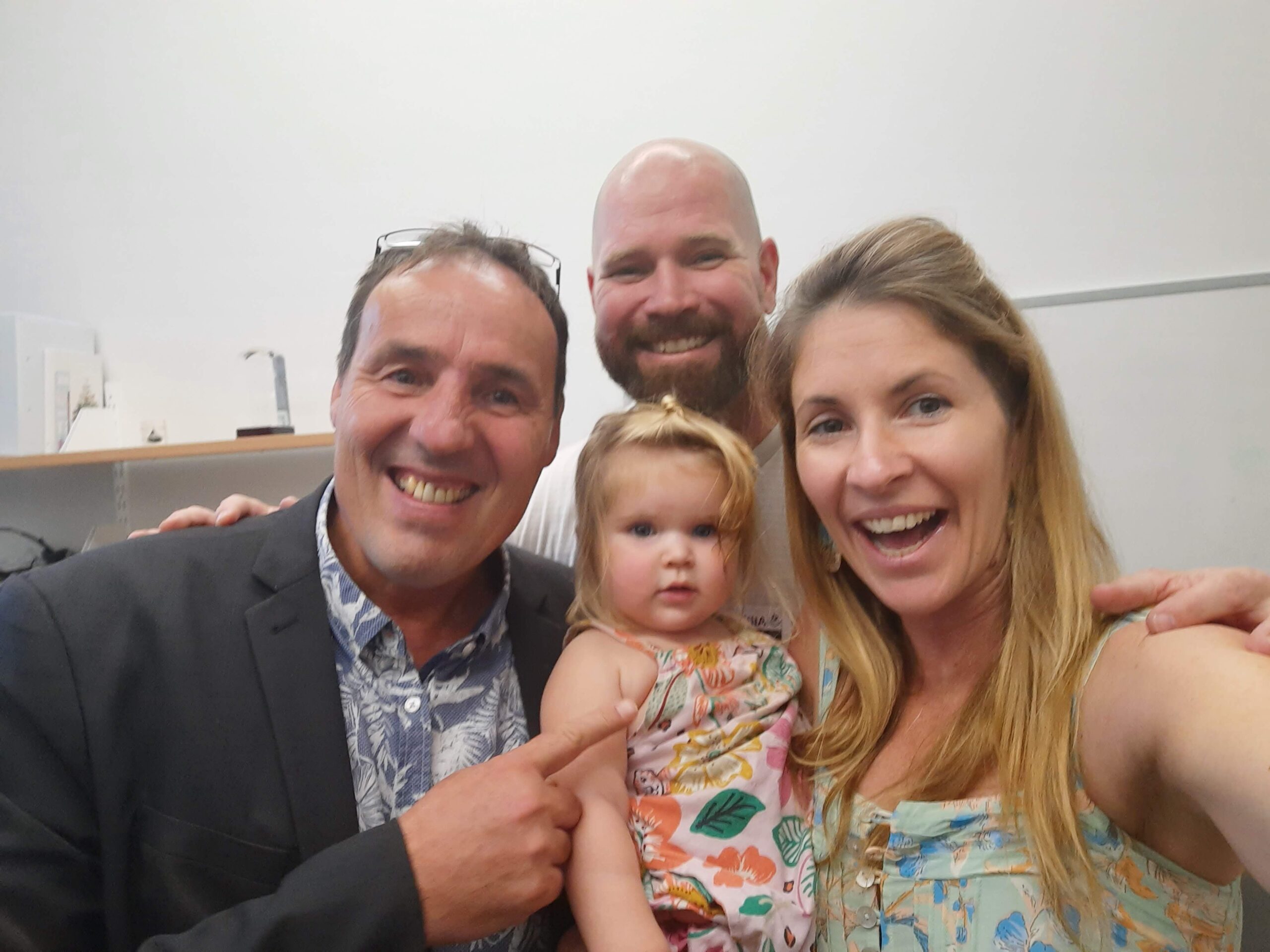We are absolutely over the moon that Our Moon’s Mission (OMM) organoid expert and lead researcher from UQ, Professor Ernst Wolvetang has secured almost $1 million from the Medical Research Future Fund (MRFF) to continue testing gene therapies with “mini-brain” organoids for children with SPG56!
The monumental grant comes after Prof Wolvetang and his team already dedicated 18 months to our collaborative SPG56 gene therapy project Our Moon’s Mission, all of which was only possible thanks to the incredible support from our local and international community: our friends, family and their networks. Thank you all so much for your ongoing support!
Whilst the MRFF doesn’t mean our fundraising challenges are over, it does mean the vital organoid research can continue at UQ with greater speed, helping translate our program to the clinic. It also means greater collaboration and expertise as we see funding for additional genetic researchers to join the team from University of New South Wales: it is a godsend to have more brilliant minds working together on this complex disease.
Importantly for us, this dedicated funding demonstrates that the SPG56 research being led by Prof Wolvetang has been recognised for the life-saving potential it holds. Now the government is saying that the mission we started with #TallulahsArmy behind us, is worthy enough to continue, not later, but NOW, within a time that still holds hope for our daughter and other children living with SPG56 today.
Read UQ’s celebration of this achievement here.
“Once we demonstrate the power and accuracy of this approach for one genetic disease, it could open the door for testing of other gene therapies for a range of genetic neurological conditions.”
-Prof. Ernst Wolvetang, University of Queensland

To recap on Prof Wolvetang’s brain organoid work, he uses tiny, synthetic organs grown from a patient’s own cells. This incredible approach to personalised medicine means the team makes hundreds of brain organoids with the same genetic make-up as our daughter’s own brain, and with these SPG56 diseased “mini-brains”, they safely test the best gene therapies without ever risking her health. FYI, not only are they making mini-brains of Tallulah’s, but of three other children with SPG56 too. This means more knowledge of disease variation, and a greater ability to find a gene therapy that helps all children with this disease.

Importantly in the long term, the MRFF funding also means our SPG56 project could serve as a pilot for Prof Wolvetang and his team to develop a replicable framework to treat other rare diseases, of which there are over 7000.
“The AIBN is aiming to lead the nation in the field of personalised medicine and this testing will help us create a pathway to faster, more accurate treatments for children with SPG56 and other forms of HSP,” Professor Wolvetang said.
“Once we demonstrate the power and accuracy of this approach for one genetic disease, it could open the door for testing of other gene therapies for a range of genetic neurological conditions.”
As we forge ahead with an aim to see our SPG56 gene therapy research project translate to the clinic in Australia in 2024, we hope the organoid research we are using will become more accessible and accepted by regulatory bodies to help other parent-led research programs in the future.
It’s a challenging and expensive road for parents trying to save their kids from a rare disease, and when organoids can be developed this rapidly and tested extensively with only a drop of a blood, this makes rare disease cheaper, faster and more accurate- something the 300 million living without rare disease treatments need desperately.

We are so proud of “Wolfie” for this incredible achievement, and we are motivated beyond belief for our research program in 2023 and beyond. Thank you so much to all of our supporters who helped get us to this point, and thank you to the MRFF board for considering and validating the importance of this life-saving work. Let’s cure SPG56. Go AIBN, go UQ!

